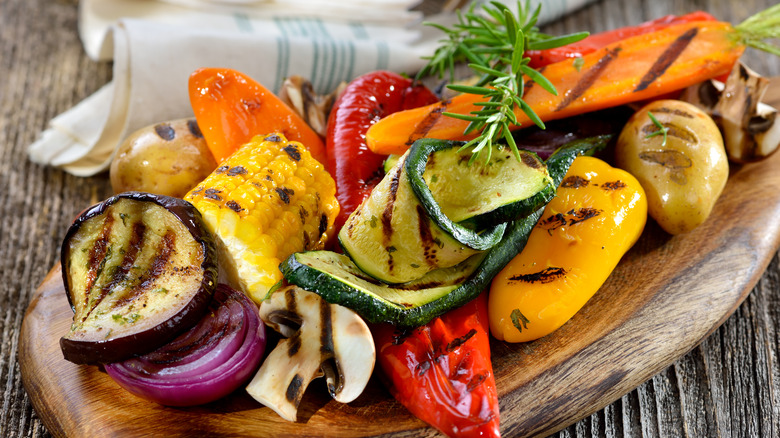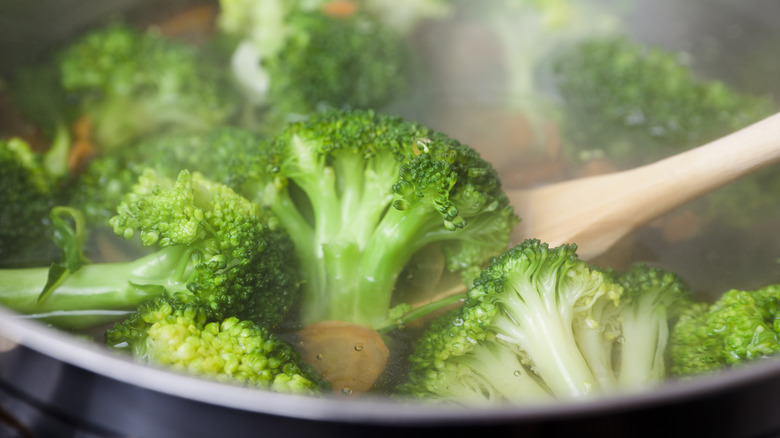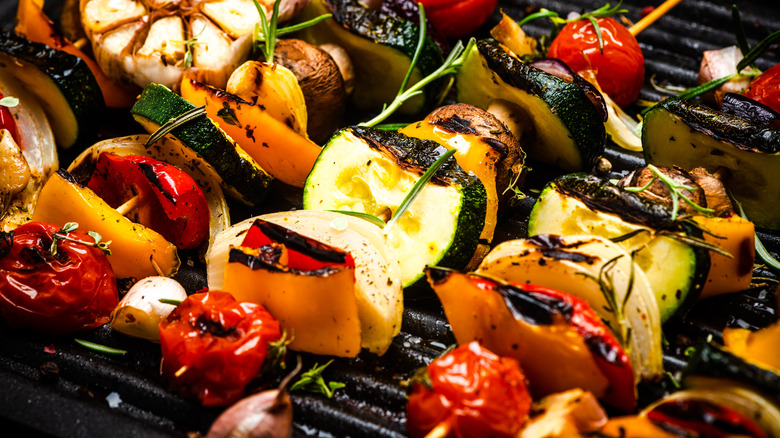Why Aren't Your Veggies Grilling Correctly? You're Skipping A Vital Step
It's cookout day and you're going all out with your best grilling recipes. Burgers, sausages, and of course, loads of vegetables are getting their turn over the fire, from tomatoes to potatoes. But when you sit down to enjoy the fruits of your labor, you discover, disappointingly, that the firmer vegetables didn't grill correctly. The potatoes are raw in the middle, and after putting them back on the grill to cook them through, the spuds end up too charred on the outside. Why does this happen and how can you prevent it next time?
Grilling is all about temperature control, and seasoned cooks will know to use hot coals to create hotter and cooler sections for different kinds of food and cooking times. But occasionally you don't have the space or the time to make this accommodation, and having just one, blazing hot temperature for the grill will cause firm vegetables to cook unevenly. The easiest, most surefire solution, is to precook the vegetables. Then, you can place them on the grill for that desired smoky finish.
Which vegetables to precook
Of course, precooking isn't necessary for every vegetable that goes on the grill. You don't need to precook tomatoes, mushrooms, or corn on the cob, as these vegetables cook relatively quickly. What you need to consider is the vegetable's firmness, regardless of whether it comes from a lack of water content or if it's particularly fibrous.
Take root vegetables and tubers, for example. Potatoes, beets, and carrots are quite firm and can be rather large or thick when left whole. If you want to grill them whole or in larger pieces, precooking is essential. Like when making potato salad, place these starchy veggies in a pot of cold water and bring to a simmer until they have softened slightly. This helps them cook evenly, so you don't end up with a burnt exterior and raw interior. Winter varieties of squash can also benefit from a bit of precooking when grilling them in large pieces.
Fibrous cruciferous vegetables like broccoli and cauliflower work well with this technique too. These likely don't have to be cooked as long as root vegetables or tubers (which can take upwards of 20 minutes if grilled without precooking), but only blanched for less than 5 minutes, before a quick grill to achieve suitable char.
Size also matters
When grilling, think of the final texture you want from the vegetables and adjust the precooking times as necessary. Do you want super tender inside and lightly charred outside? Or more smoky flavor, which means only precooking briefly so that it does not get overcooked on the grill? No matter what you precook, make sure to salt the boiling water so that it thoroughly seasons the vegetables.
If you're still having trouble with grilling vegetables evenly, even after precooking, you may need to add one more step: Cutting the vegetables down to size. If you want particularly small pieces of grilled vegetables, consider threading the vegetables on a skewer, or using a grill basket so you don't lose precious ingredients between the grates. Only skewer vegetables together that have similar cooking times. Remember as well to lightly oil your vegetables before they hit the grill, whether precooked or not, to prevent them from drying out.


